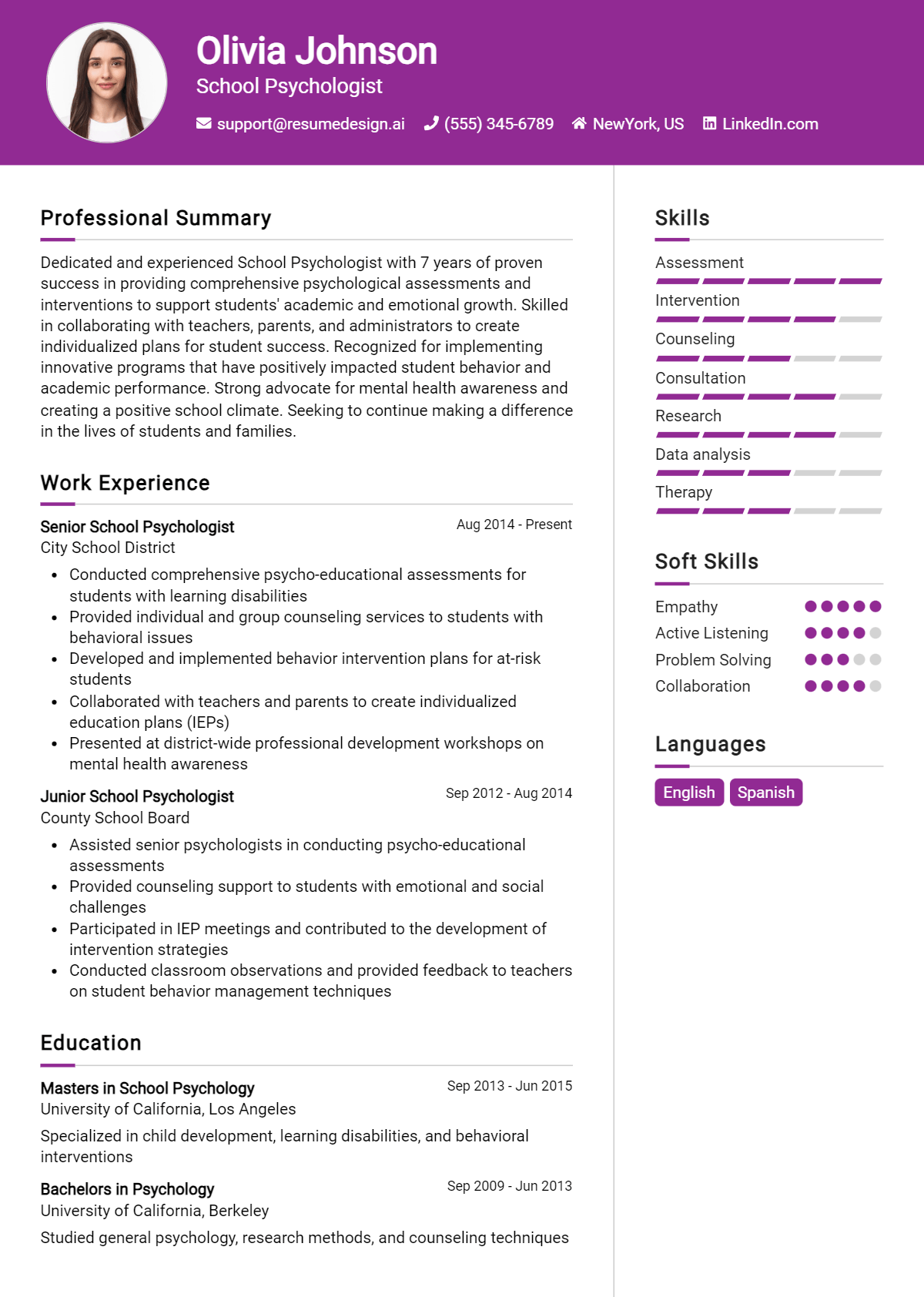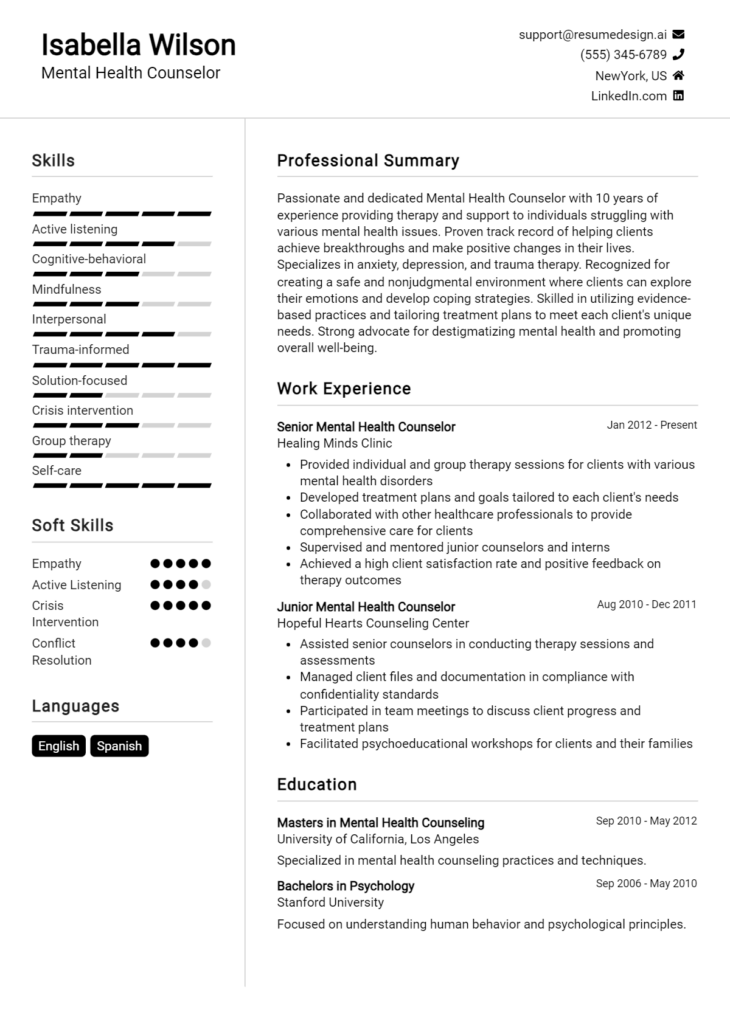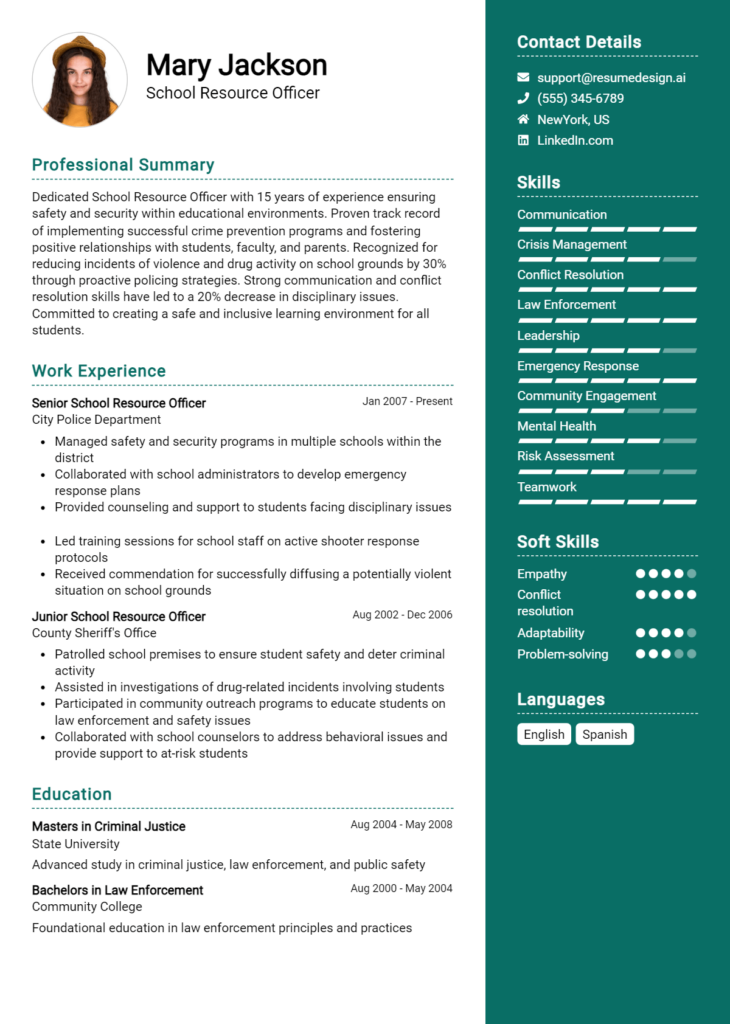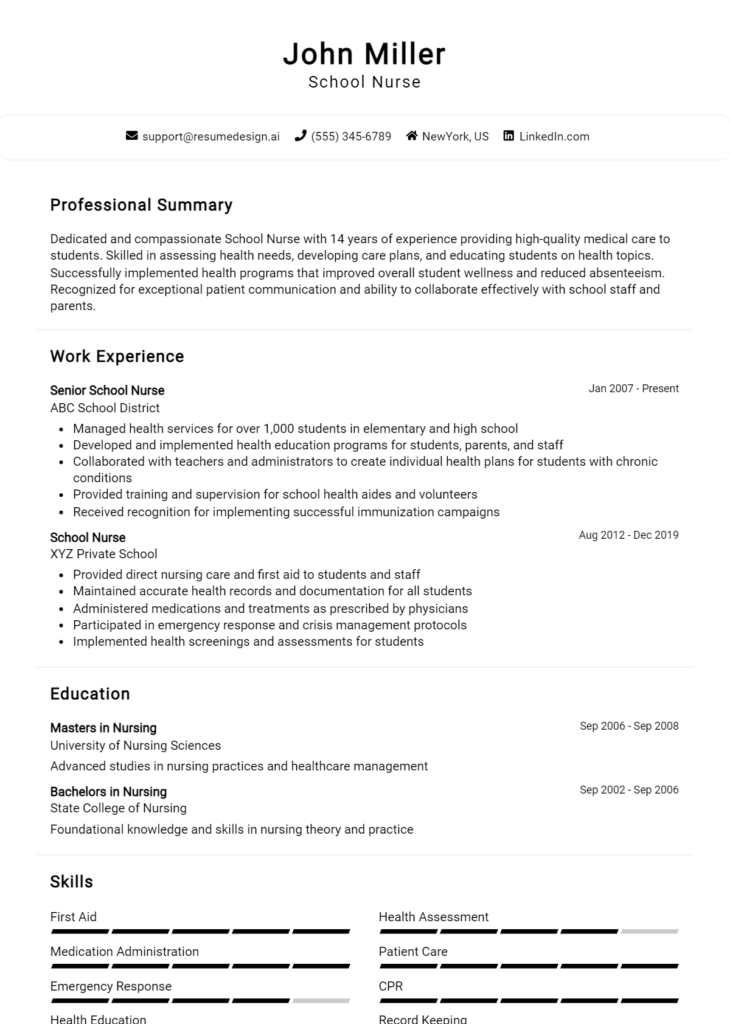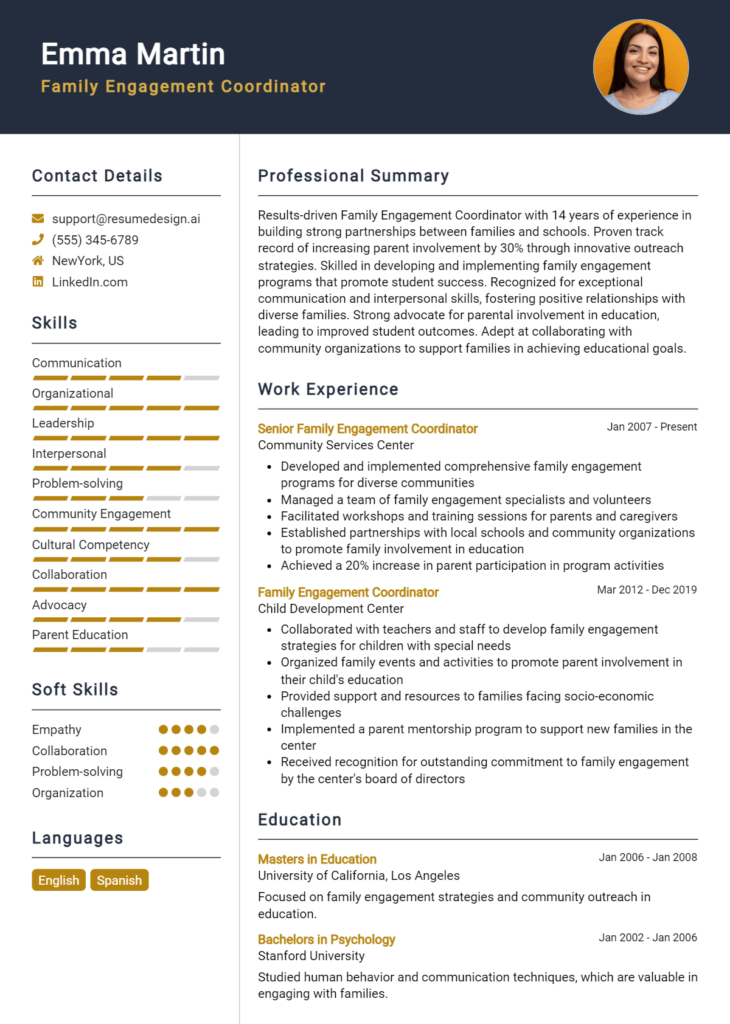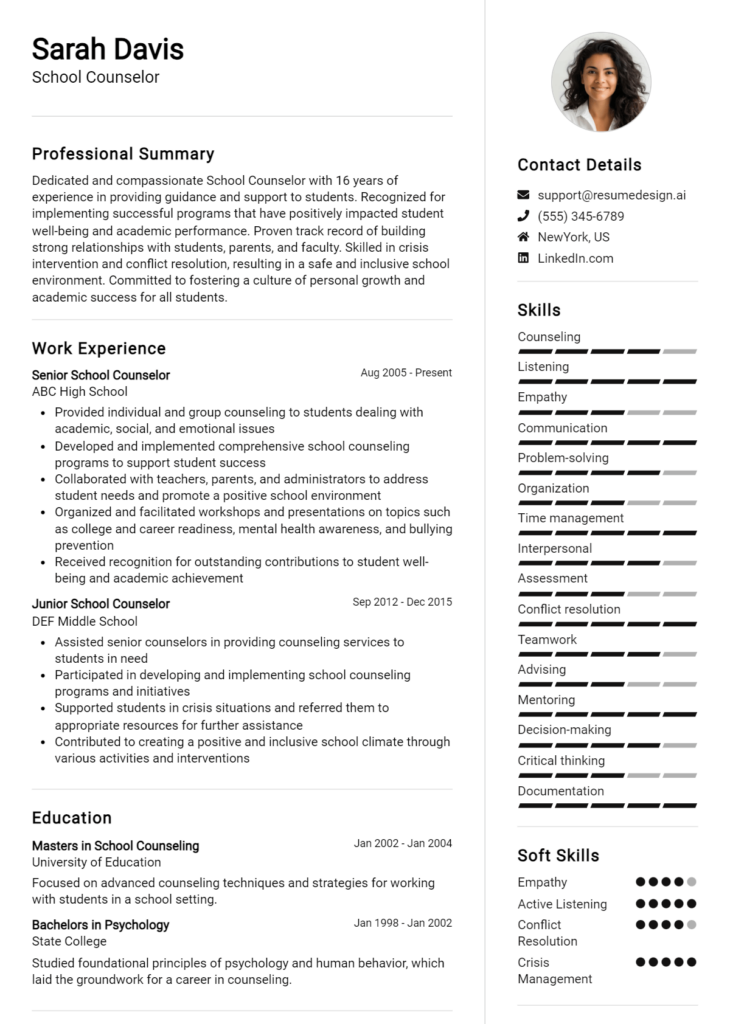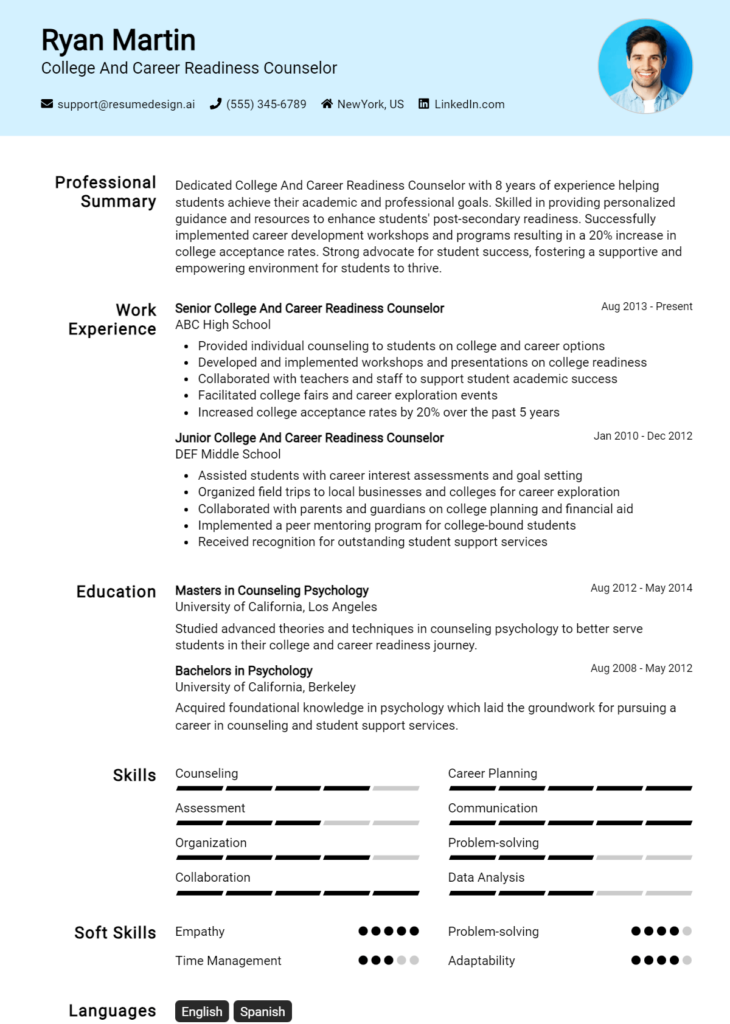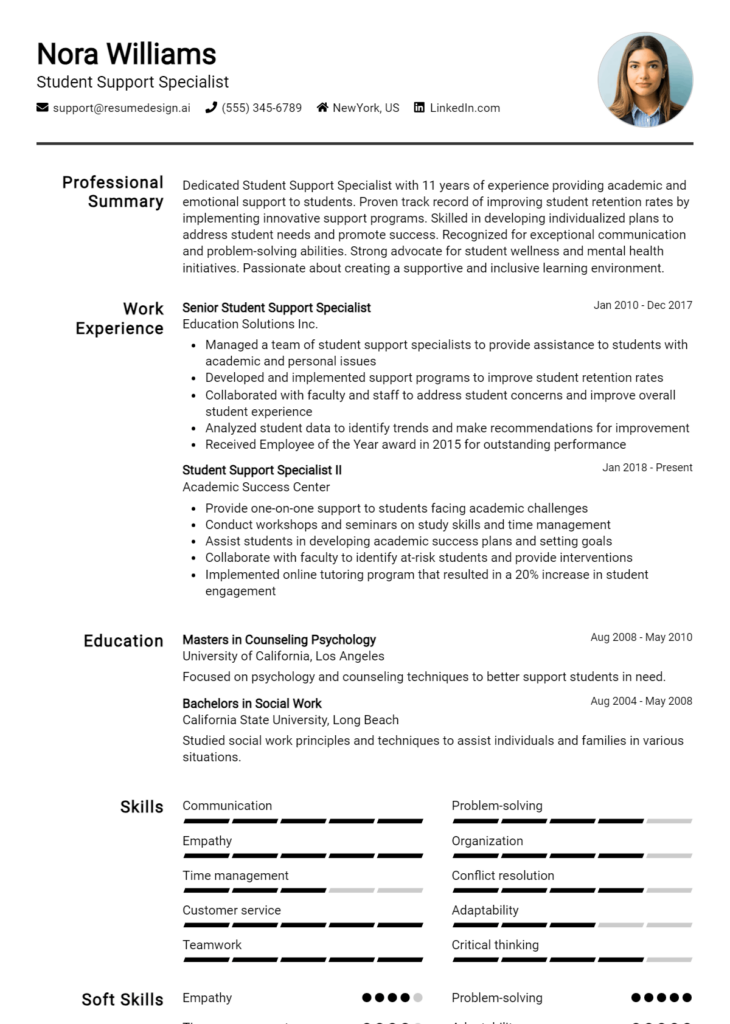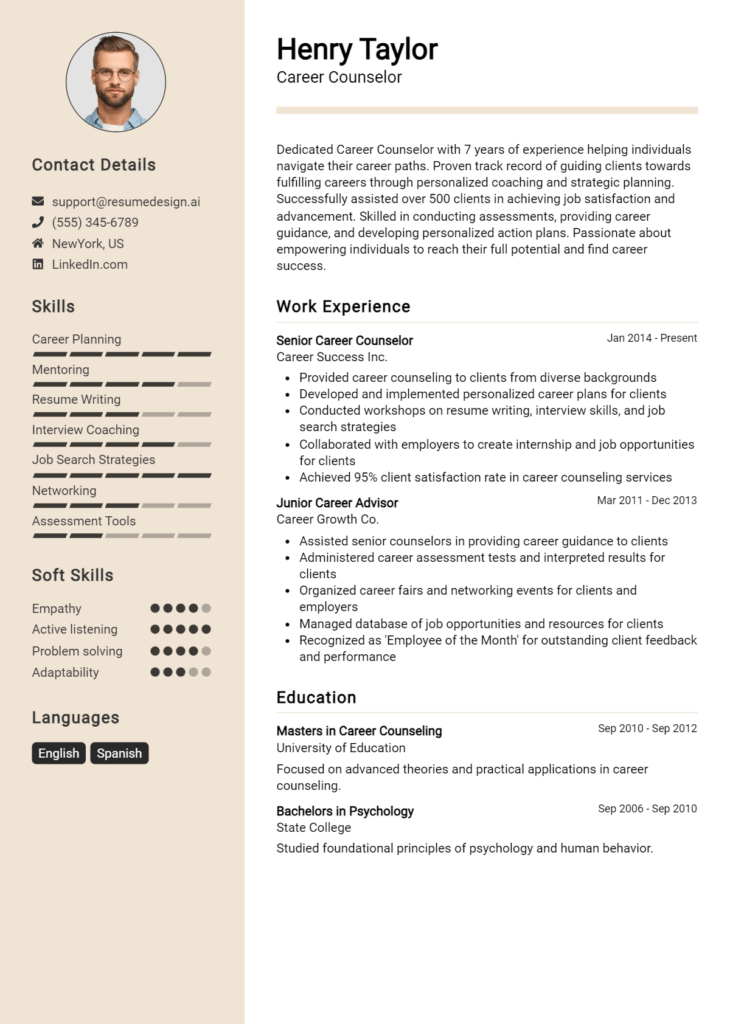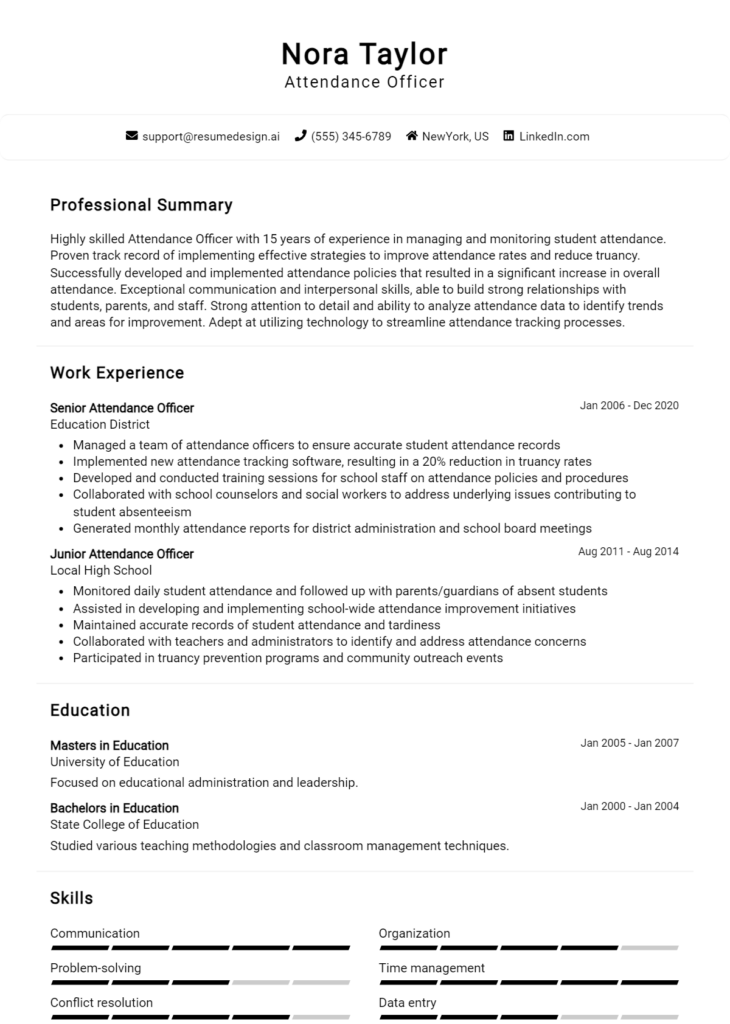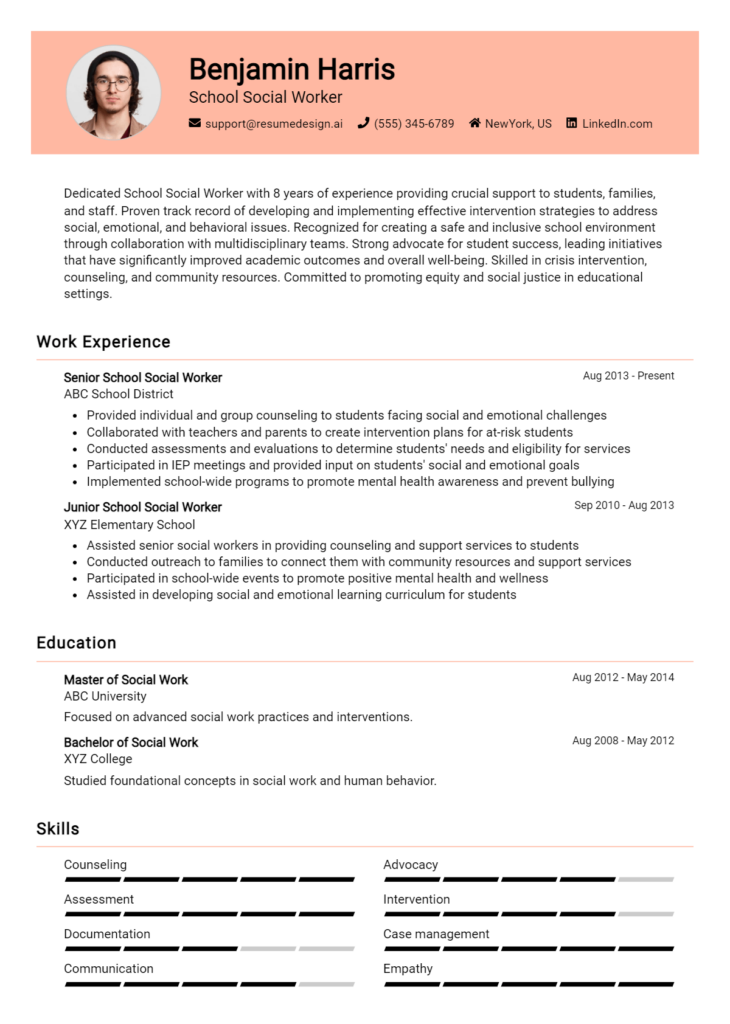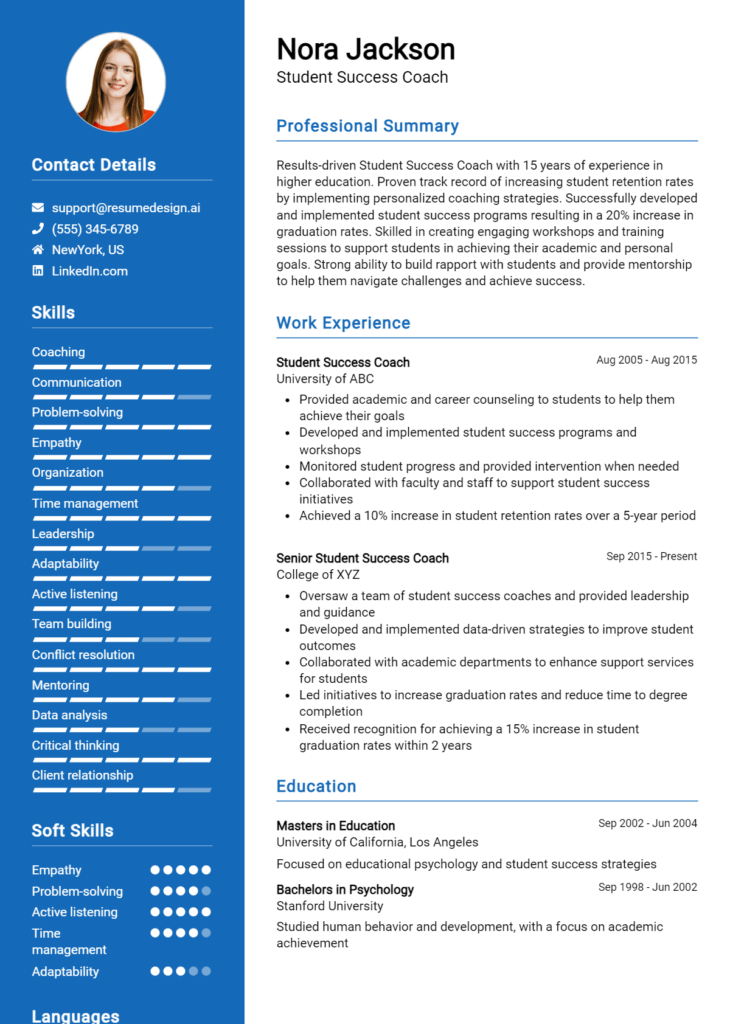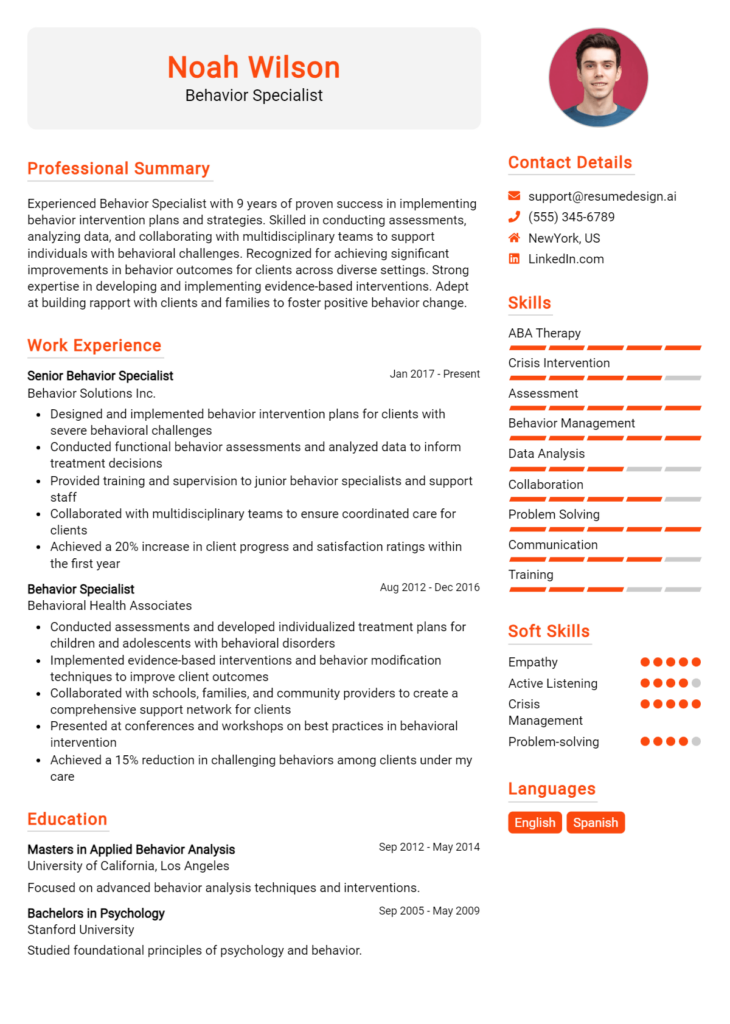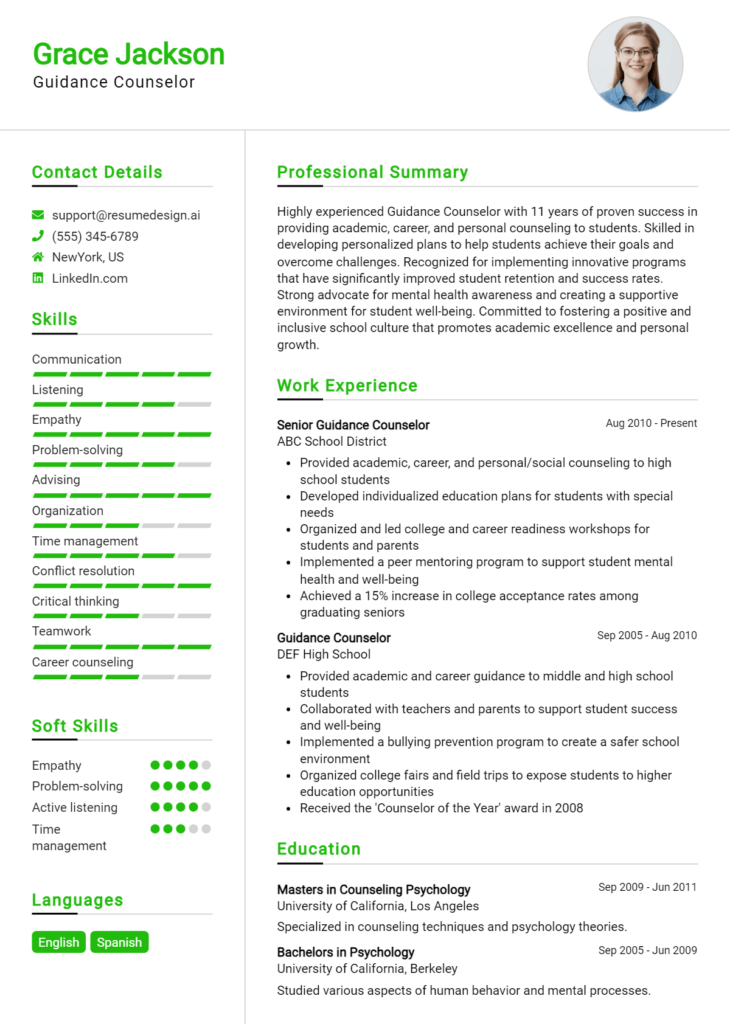School Psychologist Core Responsibilities
A School Psychologist plays a crucial role in bridging the gap between students, educators, and families, addressing emotional, behavioral, and academic challenges. Key responsibilities include conducting assessments, developing intervention plans, and providing counseling services. Essential skills encompass technical knowledge of psychological theories, operational competencies in implementing programs, and problem-solving abilities to tailor strategies for individual needs. These skills significantly contribute to the organization’s goals of fostering a supportive learning environment, and a well-structured resume effectively highlights these qualifications.
Common Responsibilities Listed on School Psychologist Resume
- Conduct psychological assessments and evaluations.
- Develop and implement individualized education plans (IEPs).
- Provide counseling services to students and families.
- Collaborate with teachers and school staff on intervention strategies.
- Monitor student progress and adjust interventions as needed.
- Conduct training and workshops for staff on mental health issues.
- Consult with parents regarding student behavior and academic challenges.
- Assist in crisis intervention and conflict resolution.
- Maintain accurate records and documentation of services provided.
- Participate in multidisciplinary teams to support student needs.
- Stay updated on best practices and emerging research in school psychology.
High-Level Resume Tips for School Psychologist Professionals
In the competitive field of school psychology, a well-crafted resume is essential for making a strong first impression on potential employers. Your resume serves as an introduction to your professional journey, showcasing not only your skills and qualifications but also your unique achievements in the realm of educational and psychological support. It is crucial that your resume reflects a comprehensive view of your capabilities, aligning with the needs of the schools and students you aim to serve. This guide will provide practical and actionable resume tips specifically tailored for School Psychologist professionals, helping you to create a document that stands out in a crowded job market.
Top Resume Tips for School Psychologist Professionals
- Tailor your resume to each job description by incorporating keywords and phrases from the posting.
- Highlight relevant experience, including internships, practicums, and previous roles in educational settings.
- Quantify your achievements, using metrics such as the number of students served or positive outcomes from implemented programs.
- Showcase your industry-specific skills, such as assessment techniques, intervention strategies, and consultation abilities.
- Include certifications and licenses relevant to school psychology, ensuring they are easily visible.
- Incorporate a professional summary that succinctly encapsulates your qualifications and career goals.
- Utilize bullet points for clarity and readability, making it easier for hiring managers to scan your resume.
- Keep the formatting clean and professional, using consistent fonts and sufficient white space.
- List professional development activities, such as workshops and conferences, to demonstrate ongoing commitment to the field.
- Consider adding a section for volunteer work or advocacy efforts related to mental health and education.
By implementing these tips, you can significantly enhance your chances of landing a job in the School Psychologist field. A thoughtfully crafted resume that effectively highlights your strengths, experiences, and commitment to student well-being will resonate with employers, showcasing you as a qualified candidate ready to make a positive impact in the lives of students and the school community.
Why Resume Headlines & Titles are Important for School Psychologist
In the competitive field of education, a School Psychologist's resume must stand out, and one of the most effective ways to achieve this is through a compelling resume headline or title. A strong headline captures the attention of hiring managers right away, summarizing a candidate's key qualifications in one impactful phrase. This brief yet powerful statement should be concise, relevant, and directly related to the role being applied for, highlighting the psychologist's unique skills and experiences. A well-crafted headline can set the tone for the entire resume, making it more likely for a candidate to be noticed and considered for an interview.
Best Practices for Crafting Resume Headlines for School Psychologist
- Keep it concise: Aim for one impactful sentence or phrase.
- Be specific: Tailor the headline to reflect the specific role of a school psychologist.
- Highlight key qualifications: Include your most relevant skills or experiences.
- Use action-oriented language: Choose strong verbs that convey expertise and impact.
- Incorporate relevant keywords: Use terms from the job description to align with employer expectations.
- Showcase unique strengths: Identify what sets you apart from other candidates.
- Avoid clichés: Steer clear of overused phrases that lack originality.
- Align with your personal brand: Ensure the headline reflects your professional identity and values.
Example Resume Headlines for School Psychologist
Strong Resume Headlines
Compassionate School Psychologist with 5+ Years of Experience in Student Mental Health Support
Results-Driven School Psychologist Specializing in Behavioral Interventions and Crisis Management
Dedicated School Psychologist Committed to Enhancing Student Well-being and Academic Performance
Weak Resume Headlines
School Psychologist Looking for a Job
Experienced Professional in Psychology
The strong headlines are effective because they clearly communicate the candidate's experience, focus, and dedication to the field of school psychology, making an immediate impact on the reader. In contrast, the weak headlines fail to impress due to their vagueness and lack of specificity; they do not highlight the candidate's unique qualifications or provide any compelling information that would encourage a hiring manager to take a closer look at the resume. A well-crafted headline can set the stage for a successful job application, while a generic title can lead to missed opportunities.
Writing an Exceptional School Psychologist Resume Summary
A well-crafted resume summary is crucial for School Psychologists, serving as the first impression for hiring managers. This brief overview encapsulates key skills, relevant experiences, and significant accomplishments, allowing candidates to stand out in a competitive job market. A strong summary not only piques the interest of employers but also succinctly conveys why the candidate is the ideal fit for the position. By being concise, impactful, and tailored to the specific job description, a resume summary can effectively showcase a candidate's qualifications and set the tone for the rest of the application.
Best Practices for Writing a School Psychologist Resume Summary
- Quantify achievements: Use numbers to demonstrate your impact, such as improving student performance or reducing behavioral issues.
- Focus on relevant skills: Highlight key competencies such as assessment, intervention strategies, and collaboration with educators and parents.
- Tailor the summary: Customize your summary for each job application to reflect the specific requirements and language used in the job description.
- Be concise: Aim for 3-5 sentences that quickly convey your qualifications and relevance to the role.
- Use strong action verbs: Start sentences with powerful verbs to convey confidence and proactivity.
- Include soft skills: Emphasize interpersonal skills like empathy, communication, and problem-solving, which are essential in a school setting.
- Showcase professional development: Mention any additional training or certifications that enhance your qualifications as a school psychologist.
- Maintain a positive tone: Use affirmative language that highlights your enthusiasm for helping students and contributing to their success.
Example School Psychologist Resume Summaries
Strong Resume Summaries
Dedicated School Psychologist with over 8 years of experience in assessing and supporting students with diverse needs. Successfully implemented intervention strategies that led to a 25% increase in academic performance among at-risk students.
Compassionate and results-driven School Psychologist with a proven track record of reducing behavioral incidents by 30% through the development of targeted social-emotional programs. Strong collaborator with teachers and parents to create inclusive learning environments.
Licensed School Psychologist skilled in conducting comprehensive assessments and developing individualized education plans (IEPs). Recognized for enhancing student engagement and reducing dropout rates by 15% through tailored counseling interventions.
Weak Resume Summaries
Experienced psychologist looking for a new opportunity in a school setting.
I am a school psychologist who helps students and works with teachers and parents.
The examples of strong resume summaries demonstrate specific skills, quantifiable achievements, and direct relevance to the role of a School Psychologist, making them impactful and memorable. In contrast, the weak summaries lack specificity, do not provide any measurable outcomes, and come across as generic, failing to capture the attention of hiring managers effectively.
Work Experience Section for School Psychologist Resume
The work experience section of a School Psychologist resume is vital in demonstrating the candidate's technical skills, leadership capabilities, and commitment to delivering high-quality educational and psychological services. This section not only presents a comprehensive overview of relevant job roles and responsibilities but also highlights the candidate's ability to manage teams and collaborate effectively with educators, parents, and students. By quantifying achievements and aligning their experience with industry standards, candidates can effectively showcase their contributions to improving student outcomes and promoting mental health within educational environments.
Best Practices for School Psychologist Work Experience
- Use specific, action-oriented language to describe your roles and responsibilities.
- Quantify your achievements by including metrics, such as the number of students served or improvement rates in assessments.
- Highlight collaborative projects that showcase your ability to work with educators, parents, and community resources.
- Emphasize your technical skills, such as proficiency with assessment tools and intervention strategies.
- Tailor your work experience to align with the specific requirements of the job you are applying for.
- Include any relevant certifications or training that enhance your expertise in the field.
- Focus on outcomes and how your contributions positively impacted the school environment.
- Use bullet points for clarity and to make your achievements easily scannable.
Example Work Experiences for School Psychologist
Strong Experiences
- Implemented a school-wide mental health initiative that resulted in a 25% decrease in student behavioral referrals over one academic year.
- Conducted over 150 psychoeducational assessments, providing comprehensive reports that informed individualized education plans (IEPs) for students with special needs.
- Collaborated with a multidisciplinary team to develop and execute a crisis intervention plan, successfully reducing incident response times by 40%.
- Led professional development workshops for teachers on recognizing and addressing mental health issues, reaching over 100 staff members and enhancing classroom support strategies.
Weak Experiences
- Worked with students on various issues without specifying the nature of the problems addressed.
- Assisted in some assessments but did not detail the types of assessments or the outcomes.
- Participated in team meetings occasionally but lacked involvement in any specific projects or initiatives.
- Had experience in a school setting without clarifying the role or responsibilities undertaken.
The examples categorized as strong reflect clear, quantifiable outcomes, demonstrating the candidate's technical leadership and collaborative efforts in improving student experiences. In contrast, the weak examples lack specificity and measurable results, failing to convey the candidate's contributions or the impact of their work in a meaningful way. This distinction emphasizes the importance of detailed and results-oriented descriptions in a School Psychologist's resume.
Education and Certifications Section for School Psychologist Resume
The education and certifications section of a School Psychologist resume is crucial as it serves to showcase the candidate's academic background and relevant qualifications. This section not only highlights degrees earned and certifications obtained but also reflects the commitment to continuous learning and professional development within the field. By including relevant coursework, industry-recognized certifications, and specialized training, candidates can significantly enhance their credibility and demonstrate their alignment with the specific requirements of the role. This information provides potential employers with confidence in the candidate's expertise and ability to contribute effectively to the educational environment.
Best Practices for School Psychologist Education and Certifications
- Ensure that all degrees and certifications are up-to-date and relevant to the role of a School Psychologist.
- Include specific coursework that aligns with key competencies required for effective practice in school psychology.
- Highlight advanced degrees, such as a Specialist in Education (Ed.S.) or a Doctorate (Psy.D. or Ph.D.) in School Psychology.
- List industry-recognized certifications, such as the Nationally Certified School Psychologist (NCSP) credential.
- Incorporate any additional specialized training, such as Crisis Intervention or Behavioral Assessment.
- Present information in a clear and organized manner, using bullet points for easy readability.
- Consider including relevant professional development courses or workshops attended that pertain to current trends in school psychology.
- Be concise yet descriptive enough to convey the significance of each credential or course listed.
Example Education and Certifications for School Psychologist
Strong Examples
- Doctorate in School Psychology (Ph.D.), ABC University, 2022
- Nationally Certified School Psychologist (NCSP), Certification Number: 123456
- Master of Arts in Psychology, Focus in School Psychology, XYZ College, 2018
- Certification in Crisis Intervention, DEF Institute, 2021
Weak Examples
- Bachelor of Arts in History, GHI University, 2015
- Certification in Basic First Aid, JKL Training Center, 2016
- Course in Creative Writing, MNO College, 2019
- High School Diploma, PQR High School, 2010
The examples listed as strong are considered relevant and aligned with the responsibilities of a School Psychologist, showcasing advanced degrees and recognized certifications that enhance the candidate's qualifications. In contrast, the weak examples demonstrate a lack of relevance to the field, with qualifications that do not contribute to the competencies necessary for effective practice in school psychology. Including strong examples helps to establish the candidate's expertise and suitability for the role, while weak examples may detract from their overall profile.
Top Skills & Keywords for School Psychologist Resume
In the competitive field of school psychology, a well-crafted resume is essential for showcasing the skills and competencies that set candidates apart. Employers prioritize both hard and soft skills when evaluating potential hires, as these attributes directly influence a school psychologist's ability to foster a supportive and effective learning environment. Highlighting relevant skills not only demonstrates a candidate's qualifications but also their commitment to the emotional and educational well-being of students. Understanding and articulating these skills can significantly enhance a resume, making it more appealing to hiring managers.
Top Hard & Soft Skills for School Psychologist
Soft Skills
- Empathy
- Communication
- Active Listening
- Problem-Solving
- Patience
- Adaptability
- Conflict Resolution
- Team Collaboration
- Cultural Competence
- Ethical Judgment
- Advocacy
- Emotional Intelligence
- Time Management
- Critical Thinking
- Relationship Building
Hard Skills
- Psychological Assessment
- Data Analysis
- Knowledge of Educational Laws and Policies
- Intervention Strategies
- Crisis Intervention Techniques
- Report Writing
- Familiarity with Special Education Services
- Behavioral Modification Techniques
- Knowledge of Child Development
- Counseling Techniques
- Research Skills
- Program Evaluation
- Familiarity with Mental Health Resources
- Use of Psychological Testing Instruments
- Training and Workshops Facilitation
- Technological Proficiency (e.g., data management software)
By emphasizing these skills, candidates can create a compelling narrative of their qualifications, further supported by their relevant work experience.
Stand Out with a Winning School Psychologist Cover Letter
Dear [Hiring Manager's Name],
I am writing to express my interest in the School Psychologist position at [School District/School Name] as advertised on [Job Posting Source]. With a Master’s degree in School Psychology and over [X years] of hands-on experience in educational settings, I am confident in my ability to contribute effectively to your team and support the well-being of students. My background in assessing student needs, developing intervention strategies, and collaborating with educators and families aligns perfectly with the goals of your school.
During my time at [Previous School/Organization Name], I successfully implemented various mental health programs that significantly improved student engagement and academic performance. By conducting comprehensive psychoeducational assessments and providing targeted counseling, I have helped students overcome personal and academic challenges. My commitment to fostering a positive and inclusive school environment drives me to advocate for students’ mental health needs and ensure that all children have access to the resources necessary for their success.
I am particularly impressed by [School District/School Name]'s commitment to supporting the social-emotional development of its students through innovative programs and community partnerships. I am eager to bring my skills in crisis intervention, conflict resolution, and team collaboration to your school, ensuring that each student feels understood and valued. I believe that building strong relationships with students, staff, and families is essential to creating a thriving educational environment, and I am excited about the opportunity to contribute to such a dynamic team.
Thank you for considering my application. I look forward to the opportunity to discuss how my background, skills, and enthusiasms align with the needs of your school. I am eager to help foster a supportive and enriching atmosphere for all students at [School District/School Name]. Please feel free to contact me at [Your Phone Number] or [Your Email Address] to arrange a conversation.
Sincerely,
[Your Name]
Common Mistakes to Avoid in a School Psychologist Resume
Crafting a compelling resume is crucial for school psychologists aiming to secure a position in educational settings. However, many applicants fall into certain traps that can undermine their qualifications and experiences. By avoiding these common mistakes, candidates can present themselves more effectively and improve their chances of landing an interview. Below are some pitfalls to watch out for when creating a school psychologist resume:
Lack of Specificity: Using vague terms like "helped students" instead of detailing specific interventions or programs can dilute the impact of your experiences. Always quantify achievements when possible.
Ignoring Relevant Skills: Failing to highlight essential skills like assessment, intervention strategies, and crisis management can leave employers questioning your fit for the role. Ensure these skills are prominent in your resume.
Excessive Jargon: While it’s important to demonstrate expertise, overloading your resume with technical jargon can alienate non-specialist readers. Aim for clear, accessible language that conveys your qualifications effectively.
Unorganized Format: A cluttered or confusing layout can detract from your qualifications. Use clear headings, bullet points, and consistent formatting to enhance readability.
Neglecting Professional Development: Omitting ongoing training, certifications, or workshops can make it seem like you’re not committed to your professional growth. Include relevant continuing education experiences to showcase your dedication.
Overlooking the Cover Letter: Some candidates underestimate the importance of a cover letter. A well-crafted cover letter can provide context for your resume and highlight your passion for the role.
Listing Irrelevant Experience: Including unrelated work experience can dilute your qualifications. Focus on roles and responsibilities that directly pertain to school psychology to maintain relevance.
Typos and Errors: Simple mistakes can create a negative impression and suggest a lack of attention to detail. Always proofread your resume multiple times and consider having someone else review it for errors.
Conclusion
As a School Psychologist, you play a crucial role in supporting the mental health and educational success of students. Your responsibilities include conducting assessments, providing counseling, and collaborating with educators and parents to create effective learning environments. To effectively showcase your qualifications and experience, it's essential to have a well-structured resume that highlights your skills in assessment, intervention strategies, and your ability to foster positive relationships with students and staff.
In summary, a strong resume is your key to standing out in this competitive field. Ensure that your resume clearly reflects your expertise in psychological evaluation, crisis intervention, and your commitment to student advocacy. Highlight any relevant certifications, training, and accomplishments that demonstrate your ability to make a positive impact in schools.
Now is the time to take action! Review your School Psychologist resume to ensure it accurately represents your skills and experiences. Utilize the available resources to enhance your application materials. Explore resume templates for a polished look, use the resume builder for easy customization, check out resume examples for inspiration, and don’t forget to craft a compelling cover letter with our cover letter templates. Equip yourself with the tools you need to succeed in your job search!

